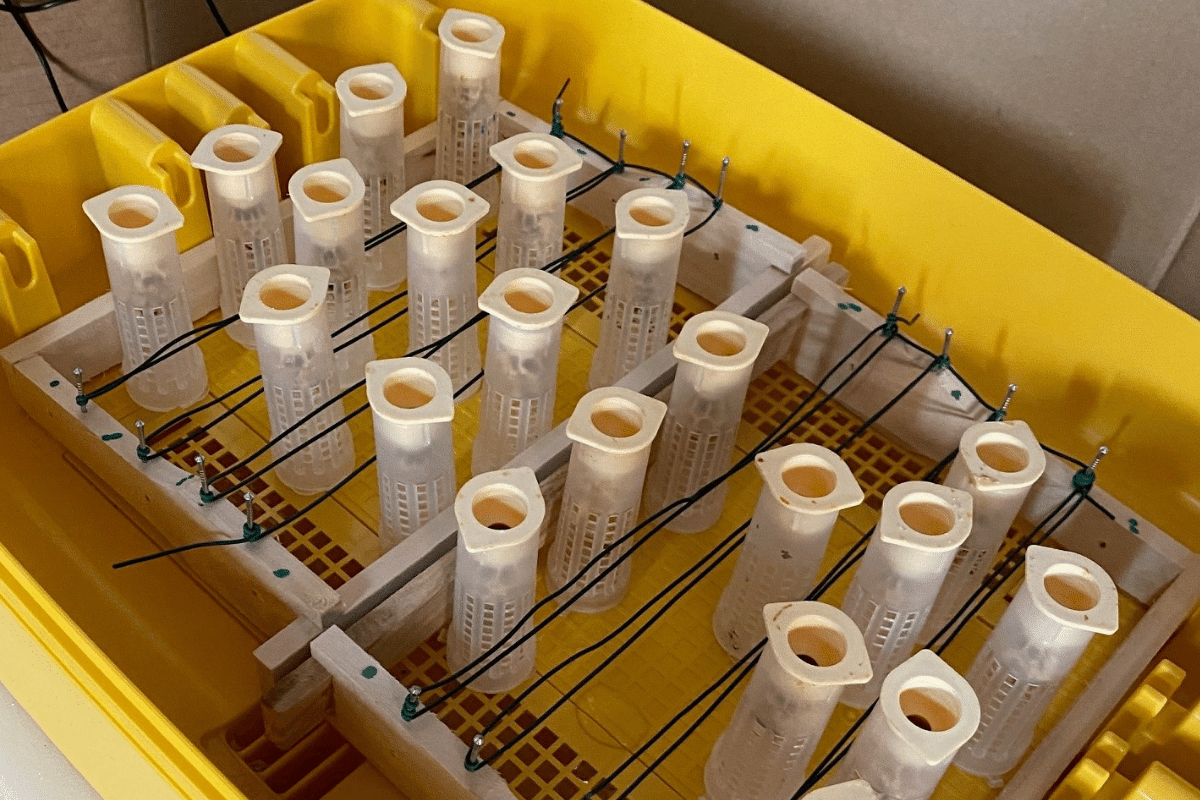Biomaster Technology Helps Arrest Declining Bee Numbers

For more than 40 years Brinsea has been world famous for bird breeding, supplying equipment for hatching eggs of many different shapes and sizes to customers across the globe from hobbyists and large scale poultry farmers to Arab princes.
However, the world’s most successful incubators protected with Biomaster antimicrobial technology have more surprising uses too. The Brinsea Ovation 28 Advance model is now being used to hatch queen bees and help arrest declining bee populations.
The Ovation 28 Advance is a sophisticated, high performance incubator ideal for a wide range of species and applications. But incubators also create ideal conditions for the growth of microbes and bacteria which can in turn be harmful to incubating eggs and can be the cause of embryonic death.
Biomaster antimicrobial technology is embedded within the plastic casing of the incubator to inhbit the growth of harmful bacteria, helping provide the optimum environment for hatching.
Biomaster is proven to reduce bacterial growth by up to 99.99%, reducing the risk of cross contamination and providing a more hygienic environment for eggs - and as it turns out, bees.
Keith Rolleston a beekeeper based in County Down, Northern Ireland, takes up the story:
"I became interested in beekeeping about 10 years ago, fuelled mostly by my love for local honey. Now have 15 hives on about 75 acres of land in the country at the edge of Strangford Lough. I keep exclusively our dark native Irish bees, a wonderful species ideally suited to our local climate and fauna. A few years ago, I became keen on raising my own queen honey bees and so began my relationship with Brinsea.
Raising queen bees involves creating conditions where the bees will produce numerous queens from specific larvae that I graft and introduce into the hive.
My process involves removing sealed cells from the hive and allowing them to hatch in an incubator, and this is where Brinsea come in. The development of the larvae requires very specific temperature and humidity control if this is to be successful.
The large clear lid means that viewing of the cells without having to actually remove the lid itself is a great design feature. It is easily cleaned and the use of the antimicrobial materials mean I don’t have to worry about microbial growth which would have a very detrimental affect on the developing larvae.
I’m probably not the typical Brinsea customer, but I would really have no hesitation in recommending their products for all those prospective queen rearers out there."
For more information visit the Brinsea website.
← Back to news